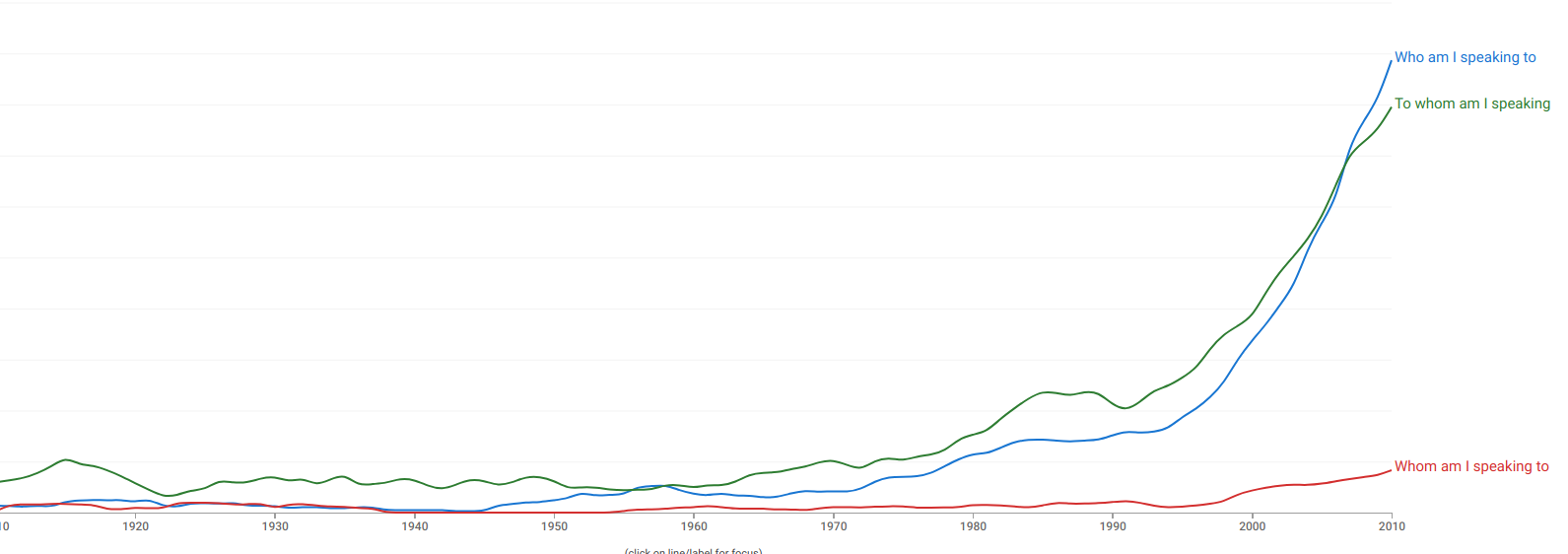As commented, use who if the expected answer is a person (or multiple people), or what if it's anything else (including birds). If you've got no idea whether it's a person or something else the "default" is what.
But as regards that hoary old chestnut about who / whom, I think this is an interesting usage chart....

What that chart clearly illustrates is that practically no-one has ever been in favour of To who am I speaking? ("fronting" the preposition, but ignoring the pedantic rule about using whom in a syntactically "objective" context).
Bear in mind that written texts (and "telephone voices") are on average much more "formal" that normal conversational English, AND that any trend visible within a source like Google Books is always likely to significantly lag behind actual usage (books take time to write and publish, they're likely to be written by older speakers, books often cite earlier texts, etc.). When we see that Who am I speaking to? has narrowly edged out To whom am I speaking?, it's reasonable to assume the usage shift is greater than suggested by the chart.
Also note that actual native speakers have always ignored those pedantic grammarians telling us we shouldn't end a sentence with a preposition - so we'd always ask What are you talking about?, rather than About what are you talking? BUT in the "semi-formal" context of answering a telephone, the combination of a "fronted" preposition to and "dated" objective case whom still occur.
I suggest that learners should simply take note that whom does still linger on in a few contexts (particularly, after "fronted" to), for some speakers. But it's not a good idea to copy them, or you'll end up asking "weird" questions like For whom do you work? instead of Who do you work for?

